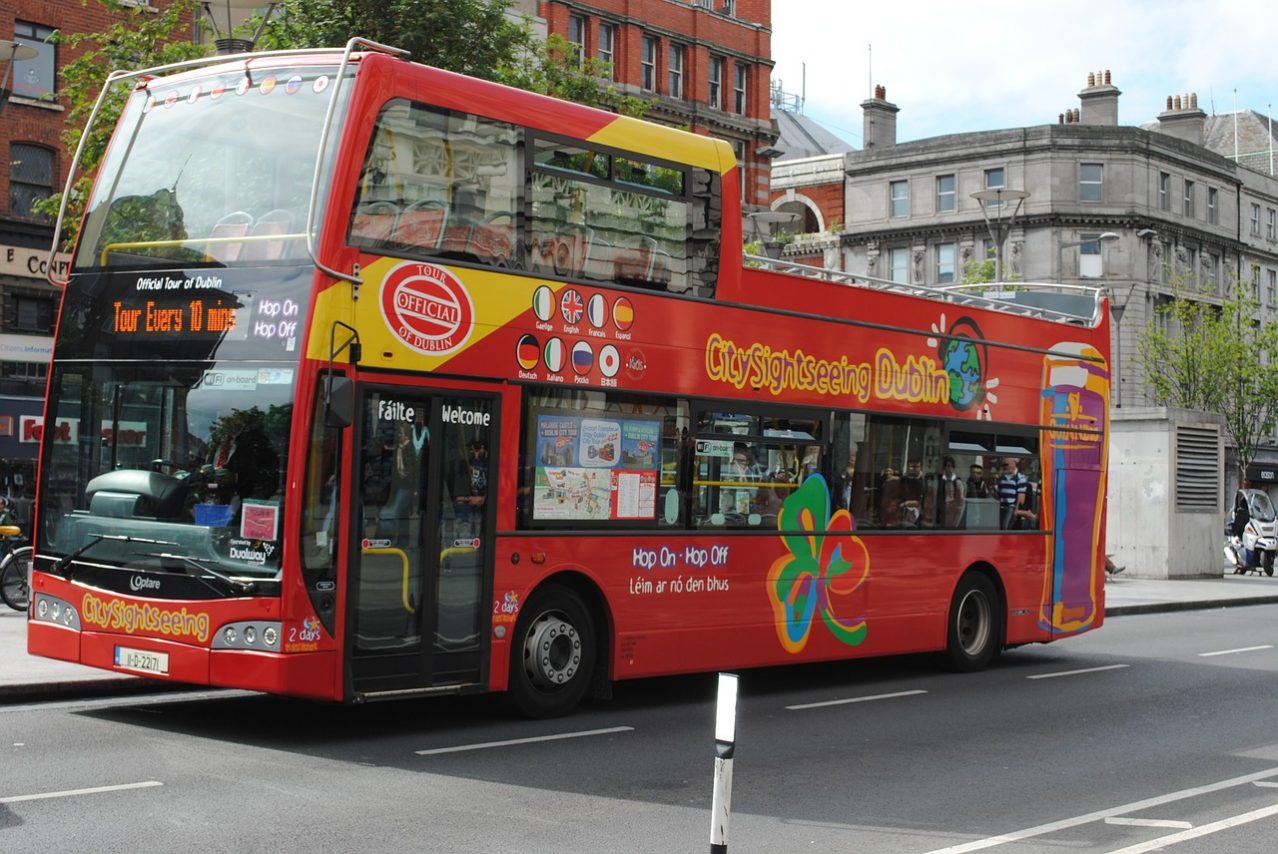Let’s be honest. Who doesn’t want a trip to Europe? We’ve all dreamed once in our lives of visiting the Eiffel Tower, Big Ben, and medieval churches. European attractions are filled with so much history. It is just too irresistible not to see them up close. Not to mention, the culture, food and the spectacular views make experiencing Europe a must. But a trip to Europe can be daunting to some given the popular awareness of how expensive it can be. However, myself being a Filipino who has traveled extensively in Europe, this is where I come in! Here are my top budget travel hacks for traveling in Europe.
1. Save money on booking your flight to Europe
Let’s start off with booking your flight to Europe, as this would take a huge chunk of your budget.
Start hunting for flights at least 6 months before you take the trip. The same rule applies to all international flights. The reason for this is that international flights are few and prices are more influenced by availability. As the seats fill up, the ticket prices increase.
Now, compare the rates and don’t commit to anything yet. Use flight search websites such as Skyscanner or Kayak to get an overview of the prices. After you’ve done your own due diligence, book directly with the airlines. This saves you a few bucks and prices will be without commission from any 3rd party sites. In addition to that, you can address any concerns directly to the airline.
Lastly, never book a round-trip ticket if you’re visiting several countries. There’s no point trekking back to your starting point again after your last country. That’s time-consuming and inconvenient. There are certain dates in some countries that’ll land you the cheapest flight deals. So it helps to be flexible with your location and dates.
2. Exchange currency beforehand
The biggest mistake that many travelers make is to exchange money at the airport. Even though it is enticing to see on the signage, “No Commission!”, just ignore it. They offer unbelievably low rates. The best place to exchange money is at your local bank. If you do forget to exchange euros before boarding your flight, your best bet is to withdraw money at a bank within Europe or at a currency converter outside the airport.

3. Avoid the red bus!
That’s right…I mean the popular “Hop on, Hop off” red bus. This bus is mainly for convenience if you want to go sightseeing. But it comes with a hefty price. If your goal is budget travel, the best option available to explore a new city is local transportation. In Europe, city passes are way cheaper than the HoHo bus. And a city pass might offer free entry to some museums or at a discounted rate. So, your first stop should be the tourist information to buy the relevant city passes that you’ll need.

4. Skip the taxi at the airport
For budget travel, an obvious step to take is skipping the taxi at the airport. But it could be tempting to take this option if you arrive at the airport late at night, and especially if you know that your hotel would require some lengthy walking to get to.
Not everyone is keen on walking around town trying to find their hotel with their luggage and, if they’re traveling as a family, with their kids who’ll most likely be complaining! The best alternative would be booking airport transfers in advance. These are prepaid taxis that you can book online that offer reasonable rates compared to taxis. It saves you from queuing at the taxi stand and getting ripped off (which happens every now and then).
5. Cash is king and cards are queens
Not all countries in Europe are avid fans of cards, and most European buses don’t accept them at all. Credit cards can’t be used everywhere and you don’t want the feeling of not being allowed to board the bus, right? Don’t miss the opportunity to visit your travel attractions because of zero cash. Also, most of the best food bazaars offering the best local food take cash only. Cards, however, can be handy when making a large purchase like paying for a hotel room. But do check with your bank if they charge any international fees. Although technically this is not a budget travel hack, this is sure to be a lifesaver!
6. Grab some snacks before the flight
One last word regarding your flight. Just like other places in the world, Europe can be pretty expensive when it comes to airplane snacks. There’s a reason why jokes about airplane foods are so prevalent; the food is just that bad. Rather than buying snacks on the plane at over-inflated prices, stop by the small shops around the airport and get some food you can take on the plane. Even if you aren’t hungry before you get on the plane, you’re bound to be after sitting on the plane for several hours.
7. Eat on a Budget
Eating out each and every night is going to get pretty pricey. There are a few things you can do to keep your food budget down and to look after your wallet. Start by eating at less fancy and popular restaurants and find the mom and pop diners. If not, find the places the locals go. Your best bet to accomplish this is to find restaurants away from tourist locations. You can also try venturing into the food courts in shopping malls to check out their prices. The cheapest option would be cooking food yourself if you’re staying at an Airbnb.
8. Check Your Cellular Plan
Perhaps the most overlooked Europe travel hack is cellular data roaming. Not everyone is willing to invest in a Roaming plan because they have the impression that it is just another expense.
Trust me, it’s worth the investment. You can go places in any city spontaneously. And most importantly, when you’re lost and the locals don’t speak that much English. This can be a life-saver. Believe me!
Give your mobile carrier a call to make sure that you’ve got an extended data coverage in place and won’t be hit with roaming charges when you leave the country. If it’s going to be expensive to use your mobile data plan abroad, then you can pick up a pay-as-you-go phone for a cheap price in your destination country at the airport. If not, there are lots of international SIM cards that you can order online.
9. Avoid traveling in the summer if you can avoid it
Traveling to Europe (and generally to most other places) during the summer will not only be less satisfying—locals go abroad, everywhere is booked up and crowded, etc.—but will also be more expensive. If you’re able to, traveling to Europe during the winter can save you enormous amounts of money, and especially with hotel bookings. You should also try to avoid traveling in December if you can.


10. Be open to ride-sharing
Sharing a long distance ride with a complete stranger has become quite a common thing within Europe now. There are several companies that offer this, with the most famous one being BlaBlaCar. This is a great way to save money on travel within Europe if you’re comfortable with the idea.
11. Take the Eurail/Interrail
(Eurail for non-Europeans and Interrail for Europeans)
Sometimes it helps to compare the rates between flights within Europe and the Eurail. Most of the time taking the train is cheaper and saves you the trouble of checking your luggage at the airport.
12. Stay somewhere near the city center
I’ll probably get a bit of backlash for this tip, but in my experience staying central has paid off. It is true that you can save a few euros staying on the outskirts of the city, but the long commuting time and costs just aren’t worth it. You’ll want to cherish every moment and take your time walking along the cobbled-stone streets downtown, or leisurely exploring in search of hidden gems and those types of pleasant surprises that only travel can offer. In addition to that, everything is within reach around the central area; think about that short minute walk you’d only need to take to grab that late night snack, or not having to worry about when the last bus or train leaves the city so you can get back to your apartment. If you think staying at the city center is expensive, think again! Sure, it may take a bit of effort and planning beforehand, but booking a decent, central place to stay at a reasonable rate is always possible and shouldn’t be ruled out by default.


13. Choosing cheaper destinations
Some of the cheapest countries in Europe include Bulgaria, Romania, Greece (except Santorini), Portugal, Turkey, Hungary, Croatia, Latvia, Serbia, and Poland.
Suggested next reading: 10 Of The Best Things You Can Do In Berlin On A Budget


